Bennis and Wilkerson agree on reparations but disagree on whether the U.S. should withdraw all troops. Phyllis Bennis and Larry Wilkerson join Paul Jay on theAnalysis.news
Paul Jay
Hi, I’m Paul Jay, and welcome to theAnalysis.news. Please don’t forget the donate button on the website and the subscribe button on YouTube, and if you can share this file with a bunch of people, and in a second we will return for a discussion about President Biden’s plan to withdraw U.S. troops from Afghanistan.
President Biden has announced plans to pull troops out of Afghanistan by September 11th. And there’s little doubt, at least in my mind, such a course will leave the country in the midst of civil war and in all likelihood ruled by the religious extremist and in the words of many Afghan activists, Taliban fascists.
According to many reports, the Afghan Taliban remain heavily influenced or even controlled by Al-Qaeda. That’s not to say American allied warlords running the current Afghan government are much better. That said, should the U.S. get out? I certainly think so, but not like this.
It was under Jimmy Carter and then Reagan, who armed the rural religious extremists to fight the urban Afghan modernizers in order to suck the Soviet Union into a war. This led to the withdrawal of the Soviets and then the U.S., and that led to a civil war that killed millions of Afghans. A country that was on the road to a more developed economy and modern culture was turned into a wasteland.
It was from the ashes of this U.S. instigated civil war that the Taliban arose under the tutelage of U.S. allies Pakistan and Saudi Arabia. Yes, the U.S. should withdraw and the sooner the better, but we should demand more than that. There must be significant reparations paid to the Afghan people to be administered by the U.N. Yes, this endless war must end, but the plan must start from the interests of the Afghan people who have been the victims of U.S. policy.
There have been many plans for transforming the Afghan economy from primarily a narco-state to producing poppies for pharmaceuticals. None of these reforms have interested the U.S. Perhaps too many Americans are profiting from the export of heroin. Afghanistan is rich in minerals, including what’s been called the Saudi Arabia of lithium, a mineral used in batteries, and that could help develop a more modern economy, but again, the U.S. has done little to nothing to encourage this. The real solution to the Afghan war is ending the crushing poverty, rebuilding the educational and health care system and so on.
Everyone has known this for years. Bush talked about a Marshall Plan for Afghanistan. Obama talked about a Civilian Surge, but none of it happened. I know there are no good and simple answers at this point, but to abandon the Afghan people and particularly the girls and women to the viciousness of the Taliban is another crime committed against that long suffering people. There needs to be some sort of international plan financed by the U.S. and the Saudis, but not administered by them.
This may be politically impossible at this point, but why should we condone anything else? An international conference that included 20 countries, including the U.S. and the U.N., was scheduled to take place in Turkey, but it’s now been postponed. For more of my take on Afghanistan, please watch my film Return to Kandahar. It’s in the documentary section on theAnalysis.news website. Now, joining me to discuss Biden’s plans to remove troops from Afghanistan are Phyllis Bennis, who is the director of the New Internationalism Project at the Institute for Policy Studies, and Larry Wilkerson, a retired United States Army colonel and former chief of staff to United States Secretary of State Colin Powell.
Phyllis, why don’t you go first? What’s your take on where things are at?
Phyllis Bennis
Thanks, Paul. I think that it is very important that the troops be pulled out. I also think it’s not at all clear that Biden’s plan does involve pulling out all the troops. He seems to be speaking of the 2500 or so ground troops who mainly have been training the rather feckless Afghan army to little success, it seems, but there’s another thousand special operating forces, special operations forces from the U.S. that are also in Afghanistan. There’s no talk of withdrawing them, and crucially, we have not heard a word about ending the airstrikes and drone bomb attacks that have killed more Afghans than any of the ground troops have in recent years.
So this is very important because it appears that the U.S. is not actually ending its own war in Afghanistan. It’s simply pulling out the ground troops, which is one contingent of that. Pulling those troops out is important. It’s important symbolically and it’s important realistically in terms of making any sort of change in U.S. policy, but it’s not going to end the war.
I do think that it’s true that when the U.S. ground troops pull out and perhaps some of the other aspects are scaled down, it doesn’t seem they’re going to end, whether we’re talking about the drone strikes, the air strikes, or the special operations actions. If they are scaled down some, there will be gains in control of territory and some people by the Taliban. The question of what that’s going to mean for people in Afghanistan, I think we have to be very careful in making the kind of predictions you are, Paul. The difference between the Taliban and many of the forces within the Afghan government is quite small.
We have people like Gulbuddin Hekmatyar, who was one of the leaders of the anti-Soviet Mujahideen in the 1980s, who was one of the first in the 1970s when he was a student, he had invented this rather horrific concept of throwing acid in the face of young women who had the temerity to believe that they deserved to get a higher education. He’s now negotiating his own peace plan between the Taliban and the government as a major respected figure in Kabul, and he’s not the only one.
There’re a lot of warlords like him whose view of women’s rights is barely one notch better than the Taliban and in some cases not better at all. So this notion of what it will mean for the U.S. to pull out is an important one. And it has to be matched by the question of what will it mean for the U.S. to stay? We too rarely hear that question. And I think it’s the answer to that question, which means more civilians dying of continuation of the war, continuation of a failed set of economic and political goals.
At the end of the day, this false claim that the government in Kabul, led by a president who many in Afghanistan refer to as the mayor of Kabul because his brief really doesn’t go past the city limits pretty much, is a false effort by the United States to impose on this country with its decades, centennial, millennial histories of very local family, clan, tribe, region based identity, not national identity, trying to impose on that this government that’s a parliamentary system that’s supposed to be democratic and at the end of the day does not reflect who Afghans are in terms of artificially imposing this national strong center, which is not at all what Afghans themselves have ever created. So I would just close with the sense that your last point about the need for reparations and compensation is crucial.
It’s also crucial to recognize that who should we write the check to is a very tricky business. There is no viable government that is not completely invested in corruption of every sort, and there’s not ever been the chance for Afghan civil society, particularly on a national level, to develop to the point where it could absorb the kind of large scale financial contributions that are required from the U.S. who has done so much damage in that country. Going through the U.N. is probably the best way possible right now, but that’s never the best answer. We have to be more creative.
Paul Jay
Just before I get to Larry. Just let me say, as I said in the beginning of my intro, the northern warlords who control the current Afghan government may be a notch better. Certainly there’s elements of them that are no better, but there are women in parliament and you certainly wouldn’t have that under the Taliban. So there’s something, there’s something there.
Phyllis Bennis
I would agree with you. There are women in the parliament. There are women in science and business and education. That was not possible, but let’s be clear. Twenty-five percent or less of people in Afghanistan live in cities. Seventy five percent, three quarters of the population live in tiny villages scattered over an enormous territory, and those gains for women, which are very real in Kabul and Kandahar, but pretty much nowhere else, those gains have not reached the vast majority of women.
So after 18 years of war and near U.S. occupation, Afghanistan still has the worst record in the world for infant mortality, and it’s just barely coming out of its old days of having the worst record for maternal mortality, slightly better for some women. So that has improved a little in some areas, but for the vast majority of women, they have not benefited in the ways that we see so much publicity around. Yes, there are women in the parliament. That’s a good thing, and women are going to have a very hard time with it. They’re going to have to fight their way back, fight their way to human rights the way they’ve always fought for human rights, but it can’t be imposed from outside. It simply doesn’t work.
Paul Jay
Larry, what what’s your take?
Larry Wilkerson
Let me leave the minutiae for a moment. The minutiae is important. There’s no question about that, particularly for the Afghans, certainly for the Indians and the Pakistanis and others in the region, but let me just leave that for a moment and go up to the strategic stratosphere, if you will. The great game is back on again, the missing player, of course, is the most powerful player at that time, in my view, Great Britain. Now a middling power, as Jeremy Greenstock called them recently, but the great game is back on again and replacing Britain, if you will, and I mean in terms of power dimension and proximity is China.
Afghanistan sits athwart a portion of what China plans as its Central Asian, its most important base road initiative. Billions of dollars have already poured into Kashmir as an experiment and created a 30 kilometer wide corridor through Kashmir, one of the most peaceful things that’s happened in Kashmir in a long time.
This is going to involve an enormous competition, already is involving an enormous competition. The one missing player in significance being, oh, yes, the United States of America.
Why on earth would we want to pull out of a place that is virtually impossible to get into without enormous help from states like Pakistan, Russia, Uzbekistan and so forth, all of whom we had assistance from in 2001? Why would we want to leave a bastion in the great game at this particular time?
I’m not talking about state building, an effort at which we have failed abysmally, just like we have every other time we’ve undertaken it. I’m talking about real strategic necessity if you’re going to remain a player in the world and in one of the most important and going to be increasingly important regions in the world, whether you’re talking about oil, gas or simply China’s ability to get into the soft underbelly, if you will, not only of Turkey and that area, but also Europe.
If you’re looking at it from that point of view, Mike Gerson, whom I have no love for, he was Bush’s principal speechwriter when I was in the administration, had an op-ed in The Washington Post yesterday which touched on this, and most of it I agreed with. I didn’t agree with the cavalier method in which he dismissed American casualties, which is a trait of the neoconservatives, but I did agree basically with the strategy he was talking about. We need to be there, and by the way, underneath that, we need to be there, our NATO allies, who are not anxious for us to leave, to a state they are not anxious for us to leave, can help do the things that they do much better: state building and help the Afghan government corrupt and foul as it is become more legitimate and more of the Afghan people’s estimation, which is the most important thing for creating an Afghanistan that can stand on its own feet and at the same time deal with Pakistan’s efforts to make sure that doesn’t happen.
If we stay there, we stay there for this very strategic reason and we stay there as a lily pad, as Jim Jones used to call it, that we can light on at any given time without having to go through all the machinations we had to go through in 2001 to get there. It was so frustrating for Donald Rumsfeld at the time–no love for him here either– that he literally cursed the Army and its chief of staff for not being able to get into Afghanistan quicker.
Well, Don didn’t know much about geography or about maps. So why leave now?This is a counter view to all my veteran colleagues who want us out instantly, the ones I talked to, the Marine and Army, who think we’ve just failed miserably, and even though their buddies have died and been horribly wounded, they’ve come home with PTSD or brain injury or whatever. They want us out, and this is almost across the board with the people with whom I talk to. A few regret the fact that we haven’t done better and that we failed so miserably, and they’re ready to admit the military was central to that failure, but they want out and they think I’m crazy when I start talking about this higher level strategy.
Nonetheless, I’m compelled to do so because all you have to do is look at a map, look at the competition in that region right now. It’s more important than the Levant, it’s more important than Africa. If you’re going to get out of somewhere, get out of Mali, get out of Somalia, get out of Sudan, get out of Niger. Get out of all those countries that you’re now contaminating with your military presence, Syria, Iraq, perhaps, but don’t get out of Afghanistan.
It’s the one place in the world where you are that is genuinely strategic for you to be there.
Phyllis Bennis
The people of Afghanistan are not minutiae. This is their country, not our country.
Larry Wilkerson
I wasn’t talking about them [the people] being minutiae. I was takling about the detail with which you were elaborating the problem in Afghanistan. That’s not the people. That’s the minutiae.
Phyllis Bennis
For the people who live there, those things are not minutia.
Larry Wilkerson
I dare say just like the deaths in Minnesota, aren’t minutiae. They’re not strategic?
Phyllis Bennis
Exactly, but it’s what we in our high palaces of Washington might view as strategic in a great game somewhere, are the lives of Afghan people, and it’s our troops, our pilots, our bombers, our special operators, all of them who have been responsible for civilian deaths. We are responsible for that and we need to end it. That’s the most important moral reason for pulling out. Are there strategic reasons? Sure. I could come up with some.
We could argue that all day, but at the end of the day, this isn’t our country and we don’t get to decide that whatever we do in Afghanistan is more important because of what it means for our country than what it means for people there.
Larry Wilkerson
I dare to very, very boldly disagree with you there. If you’re going to feel that way about it, then let’s come home from everywhere and let’s get inside our borders and call ourselves America is great again.
Phyllis Bennis
No, I think that we engage diplomatically and not militarily. It’s a lesson we’ve never learned very well, but it’s one that the failure to learn is coming back to haunt us in incredibly powerful ways.
Larry Wilkerson
Yeah, we did it pretty well from 1950 to about 1980.
Phyllis Bennis
We can argue that one, too.
Paul Jay
All right. Well, let me break this down, because there’s two different issues here.
Larry Wilkerson
Just two?
Paul Jay
Well, let me just start with two. There’s what’s good for the Afghan people, and then you got a breakdown in the strategic argument, Larry, is what you’re saying actually good for the American people because the strategic vision you’re giving is the great game, as you say, but when was the great game good for the American people as opposed to the American athletes? I get it.
Phyllis Bennis
Or for the British people as opposed to the British elites.
Larry Wilkerson
What is the world about but elites in leadership, in education, in every walk of American life. That’s true indeed. In every walk of every state’s life. That’s true. Are we going to discard the elites because they happen to have a vision that conflicts with ours? Well, I suggest you’d better get busy and have a revolution.
Paul Jay
Well, that’s what we’re trying to do. I work as busy as we can be to have such a revolution. So, yeah, that part. I’m in full agreement with you, but that doesn’t mean up until that point of a successful transformation of the United States, we can’t advocate for a strategic vision which leans toward not maintaining dominance. And I’m a little surprised to hear this from you, Larry, because you’re usually arguing against the strategy of trying to maintain global dominance. Go back.
Larry Wilkerson
No, I’m not talking about global dominance. I’m talking about competition with our principal adversaries in the world, which is heating up. Regardless of what you and I say about not wanting it to, and it’s almost unavoidable if history tells us anything about great power competition. What I’m saying is underneath this, go back to nineteen fifty three, you will see the same arguments. You will see rather weak arguments, I think on the progressive liberal side, if I may be so bold as to say that, but you’ll see the same arguments about staying in South Korea.
We nonetheless stayed in South Korea. We didn’t stay in South Korea because we feared North Korea. We stayed in South Korea because we feared the Soviet Union, and it gave us a place from which to launch the defense of Japan and global OPLAN5001 and OPLAN I had a lot to do with managing in the 80s. Very important in terms of the Cold War. Now, if you want to dismiss the whole Cold War as a farce, that’s fine I’ll do that discussion with you, but that’s what we did.
And if [inaudible] key to that and our position in Korea was key to that, guess what happened underneath our otherwise strategic position in South Korea, one of the most capable, competent economic democratic republics on the face of the earth grew up to be the power it is today. It made history. Is the first country to go from being a debtor nation to being a creditor nation in less than a generation. We didn’t have that intent in mind. Maybe some of us did, but not very many of the elite.
But nonetheless, that’s what happened. If you stay in Afghanistan long enough, the people will get their act together just for the simple reason that you’re there as a chaperon for their doing that, even though that might not be your intent.
Phyllis Bennis
Why do you think, Larry, that the vision that U.S. war makers who went into Afghanistan have for that country is what the people of Afghanistan would define as “getting their act together.”
Paul Jay
Let’s just focus on Afghanistan, because there’s been 20 years of U.S. presence essentially in Afghanistan, and there’s been there’s been almost zero intent on the part of the Americans to do what you’re saying, Larry, which is.
Larry Wilkerson
Well, let me say one thing you just said first. We used to say this about Korea, although the presence in Korea was such that it made a real contribution to what was to be, if it occurred, the defense of Japan, but in Afghanistan, it’s essentially the same way we soldiers used to joke about Korea. We haven’t been there for 20 years. We’ve been there 20 times, each of which took a year.
That’s the major failure of the United States military and the Department of Defense and the State Department, including my own State Department and including Colin Powell, for not fighting to do other than what the military wanted to do, because what the military did was go to Afghanistan year after year after year with no continuity.
Indeed, if you look at the policies and especially the sub policies, you’ll find they did different things. One year they were after drugs. Next year they were letting the drugs do whatever they wanted to do. Next year they were doing this. Next year they were doing that, and if you ever had a general stay there long enough to be blamed enough so he could be fired, and yes, we did have some generals that were [inaudible].
Phyllis Bennis
If you look at the Afghan Papers, that were published by The Washington Post, the former generals and former colonels and former whatevers are all now saying, we didn’t know what the F we were doing in their words, we didn’t have a clue what we were there for. That’s been twenty years. There is no change underway. There is no better change underway, and there’s not going to be because there is no military solution here. There is no military solution. You can say, well, it’s not about Afghanistan, it’s about what’s happening today with China.
Larry Wilkerson
If there’s no military solution, what happens when we are out and the Taliban go and create havoc? And they do what we know they’re going to do.
Phyllis Bennis
The Taliban already control a large percentage of the country? It varies apparently between about forty-five and about sixty percent.
Larry Wilkerson
So nothing bad is going to happen without our military presence there.
Phyllis Bennis
No, I didn’t say that. I said it’s going to be bad.
Larry Wilkerson
Well then your argument is facetious.
Phyllis Bennis
It’s not going to be significantly worse than the continuing killing of civilians.
Larry Wilkerson
I think it’s going to be far worse.
Phyllis Bennis
I don’t think so, because we’re talking about the people whose lives will be changed will be some of the women, not all, some of the women in places like Kandahar and Kabul. In the small villages where the vast majority of Afghans live there has already been over recent years negotiations by the Taliban with local leaders, religious leaders and community leaders about issues like health care, opening clinics and, yes, girls education. It’s not what it should be. They’re going to have to fight every step of the way to continue it, and some of it may be lost. There will be losses. There will be further gains in the future. None of this is a guarantee. None of this is going to be easy.
There are no great solutions here, but the notion that keeping a military partial occupation of at least cities and parts of the country is somehow going to make things better.
Larry Wilkerson
It hasn’t been an occupation for a year or better. We haven’t really done anything for a year or bettter.
Phyllis Bennis
That’s not the same definition. The troops are there.
Paul Jay
OK, Larry, do you agree that there should be reparations and that this disaster of Afghanistan started with U.S. policy, arming the Mujahideen, trying to suck the Soviets into the war and so on and so on, that this all begins? That the mess is a mess created by U.S. policy. Do you agree with it?
Larry Wilkerson
If you want to talk about reparations in general, I’m all in favor of it, and it is certainly an ethical component that is due, if you will, but Paul, you got to talk about reparations to the Syrians, reparations to the Iraqis, reparations, big time to the Yemeni, you’ve got to talk about reparations all over the world, because that’s what we’ve been doing, is raping, pillaging and plundering the world.
Phyllis Bennis
That’s right, and we have been talking about reparations in Iraq. It’s been the calling card of the movement against sanctions throughout the 1990s and into the anti-war movement that began in 2001, not in 2003. It began in 2001, the first protest against war in Afghanistan, ironically, because it was three weeks after 9/11 was held on the day the U.S. bombs began to drop over Kabul on October 7th, 2001. That was the first large demonstration against the war in New York City on that day.
And I think that since that time and before, people have been demanding reparations and compensation, but we don’t owe continued military presence. We don’t owe continued occupation. We owe rebuilding and money to be controlled by Afghans. We don’t know the best way to do that.
Larry Wilkerson
I’m certainly ready to pay my taxes. I hope you are.
Phyllis Bennis
Absolutely.
Larry Wilkerson
I know you progressives and liberals believe in the modern monetary theory.
Paul Jay
No, no, no, let’s not go there. That’s another debate.
Larry Wilkerson
Let me let me walk up to your front door and give you the tax bill.
Phyllis Bennis
Fifty-three cents of every federal dollar is going to the military. Fifty-three cents. That should go to reparations and compensation
Paul Jay
OK, hang on. Let’s get back to Afghanistan. The thing that so rarely gets talked about and I don’t know why, because I think it’s the most important thing in some ways to talk about. The majority of the GDP of Afghanistan is poppies. Is drugs, illegal drugs. I mean, call it illegal, but it’s taking place on such an industrial scale in Afghanistan. It’s practically legal.
Larry Wilkerson
Does everywhere we go to war, Paul.
Paul Jay
Yeah, I agree with you, but nothing like Afghanistan.
Larry Wilkerson
We switched from cocaine to heroin. We switched from heroin to whatever. We do it because that’s the chain we build when we go to war.
Phyllis Bennis
When the Taliban came into power. They were the first force in Afghanistan that for a brief time for a brief, we’re able to stop the drug trade.
Larry Wilkerson
And we praised them and established diplomatic recognition for them.
Paul Jay
But hey, guys, hang on. Hang on. My point is, if the Afghan economy is not transformed, if it’s still a narco state, a narco economy, there’s no such thing as, quote, getting your act together. It doesn’t matter how long the troops stick around there, because, in fact, much of the American military force is cashing in on this heroin trade. There’s been lots of reporting. So it’s not just that the Americans stop trying to block the heroin trade.
There’s lots of Americans and others cashing in on this. If the economy is a dope poppy economy, you are going to continue to have warlords and Taliban and others going to war over the control of it. U.S. has done nothing to change that.
Phyllis Bennis
And military forces don’t do anything to change that. It’s going to take probably a generation of Afghan efforts to change that, and that’s not going to happen until there’s some sense of control of their own country. This is a country that was called the graveyard of empires for a reason. When they’re fighting for something that they believe in, these are people, this is a nation that knows how to fight back. They know how to get rid of imperial forces that have taken their country.
And right now, the reason that we’re seeing that the Afghan military isn’t very functional, the twenty years of being armed and trained by the United States has not made them into a a viable military. A lot of soldiers are known as ghost soldiers because they get up and leave. They go back to their families, back to their villages where they have something they believe in. They don’t believe in what they’re fighting for. That’s a big part of the reason why this military isn’t working. That’s not going to change if we stay another two years, another five years, another twenty years.
Paul Jay
I think even debating this at the strategic level that you’re talking about and I have particularly no interest or care whether the United States remains a predominant player in that region, but even at that level, you’re going to lose because you’re going to have some troops there running around in circles. The Chinese are going to come in and build infrastructure. The Chinese are already talking about helping to develop a mining sector.
Larry Wilkerson
Why not help them do that?
Paul Jay
Exactly. Why haven’t? 20 years of opportunity?
Larry Wilkerson
Why not help them across the entire region? Did I say that the competition necessarily had to be zero sum?
Paul Jay
No, but I’m saying this issue is, that’s been the plan right now.
Larry Wilkerson
You’re going to have problems with the Indians and the Pakistanis, too, eventually, and they’re going to have big problems with the Turks. Huge problems, in fact.
Paul Jay
Very dangerous problems.
Phyllis Bennis
This is the basis of saying that the military engagement is the problem. Nobody here is talking about isolationism and withdrawing into our borders and declaring America first. This is about ending military control of other countries. There’s no moral basis for it. There’s no legal basis for it.
Paul Jay
And the point I’m trying to make here, and I don’t entirely agree with Phyllis either, because I won’t just abdicate U.S. troops getting out. I advocate U.S. troops get out, and.
Phyllis Bennis
So do I. Read my article in the Nation.
Paul Jay
I know you do. So there needs to be a real plan for transforming the Afghan economy.
Larry Wilkerson
The center of gravity in good old Clausewitzian is the freaking people taking the drugs, not the people growing them, not the people producing them, not the people shipping them, not the organized crime, making billions and even trillions off of them, or the banks making their billions off of them. All the banks probably that do international business making money. The people taking the drugs.
Phyllis Bennis
We can blame the victims in another discussion perhaps.
Larry Wilkerson
Until you are prepared to go after the Europeans and the Americans who are sucking these drugs down with rehabilitation and retraining and so forth and so on. You are never going to dent this war. It’s a farce.
Paul Jay
No doubt, and part of that would be really treating this as a health problem and legalizing these drugs and so on.
We’re all in agreement with that. If you would do that. Yeah, there wouldn’t be much of an Afghan poppy trade left because the prices are all based on the fact that it’s illegal.
Phyllis Bennis
There’s no question that this government could not support itself if the U.S. completely pulled out financially and militarily. That’s true. The problem is this is not a legitimate government. That’s evidence of it. The notion that we’re propping it up doesn’t make it legitimate. It just makes it possible for it to stay in power. That’s what we have to be acknowledging.
Larry Wilkerson
Just like Vietnam, the legitimate government had a relationship with the superpower, just like the one Afghanistan is.
Paul Jay
But unlike Vietnam, where at one point I think there was a poll that said if there had been an election early in the development of this, Ho Chi Minh would have won. Most of the Afghans hate the Taliban.
Larry Wilkerson
I don’t disagree with you in general, but I’ve had long conversations with Ali Wardak and Prince Ali and others, particularly in the last seven or eight days, as they’re trying to find for Zal [Khalilzad] some Taliban who might be a hell of a lot better in terms of integrating into the current perniciously corrupt Afghan government, but nonetheless better than those that are talking to Zal, and one of the things that’s come out of this conversation is the fact that there are people within the Taliban whom Afghans, if they knew them and the ones who know them, say this, trust them more than the government in Kabul, far more, and would be willing to see them come back if they were the express people from the Taliban who wrested power from the government in Kabul or initially at least accommodated it in a composite government. So, there are people who in the Taliban aren’t all that bad.
Phyllis Bennis
It’s also true that the Taliban organizationally has been divided for 20 years. There’s a core of the Taliban that were driven out of the country and that had been living in exile for 20 years. That includes most of the negotiators in Qatar. They still have a very hard line. They’re viewing things from through the lens of what they left 20 years ago. 20 years ago there was no Internet as a viable reality. You know, this notion of they’re going to welcome back al-Qaida to create training areas.
You don’t need that anymore with the existence of the Internet to create a cell of terrorists of some sort. You don’t need physical space anymore. That’s very different. Other parts of the Taliban have lived through 20 years of U.S. war in their own country, and they are very much aware of the changes. They know that whatever government takes power when the U.S. leaves, whether it’s this week or whether May 1st, or whether it’s September 11th or whether it’s 10 years from now, that Afghanistan is still going to be dependent on the international community for economic support.
And to some degree for political survival, and to get that support to make that possible, they’re going to have to behave in a different way than they did 20 years ago, and the ones who have been living in the country, who have negotiated with local leaders over issues of health care and education and other things, not always successfully, but there’s been that level of local negotiation. They’re the ones who recognize that things have changed. Their population has changed.
The situation now is they’ve had 20 years of war and ending war is again a primary necessity, even if it means the Taliban being part of what comes to power.
Paul Jay
I think the next thing we need to do is bring some Afghans on.
Larry Wilkerson
Absolutely.
Paul Jay
And let them tell us more about what’s going on today and what they want. All right. So let’s stop here, and we should continue this whole discussion, especially this whole thing about what’s in the strategic interests of the United States.
Phyllis Bennis
And our obligations for reparations, we should continue.
Paul Jay
OK, and I am also making a promise that I’m going now to find some Afghans who can discuss this, I guess debate it. Certainly not all Afghans agree on this either. So I’m going to do that soon.
OK, thank you both for joining me again. And thank you for watching theAnalysis.news. Please don’t forget the donate button and the subscribe button and to share this and all of that.
Podcast: Play in new window | Download | Embed
Subscribe Apple Podcasts | Spotify | Android | iHeartRadio | Blubrry | TuneIn | Deezer | RSS
Never miss another story
Subscribe to theAnalysis.news – Newsletter
Lawrence Wilkerson was Secretary of State Colin Powell’s Chief of Staff from August 2002 until the secretary resigned under pressure in January 2005. Colonel Wilkerson is a career military officer and veteran of the Vietnam War, as well as a U.S. Army “Pacific hand” who served under then-General Powell. He has written extensively on military and national security affairs and now teaches at George Washington University. He has become one of the most outspoken critics of the Bush administration and its national security policies, including the CIA’s secret rendition program.
Phyllis Bennis is an American Jewish writer, activist, and political commentator. Focusing mainly on issues related to the Middle East and the United Nations, she is a strong critic of Israel and the United States and a leading advocate of Palestinian rights.
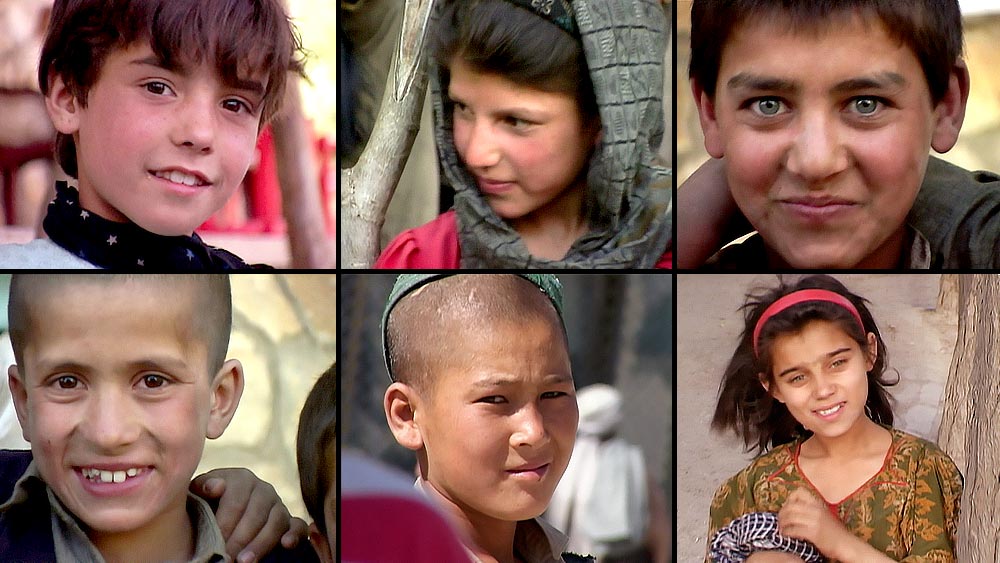
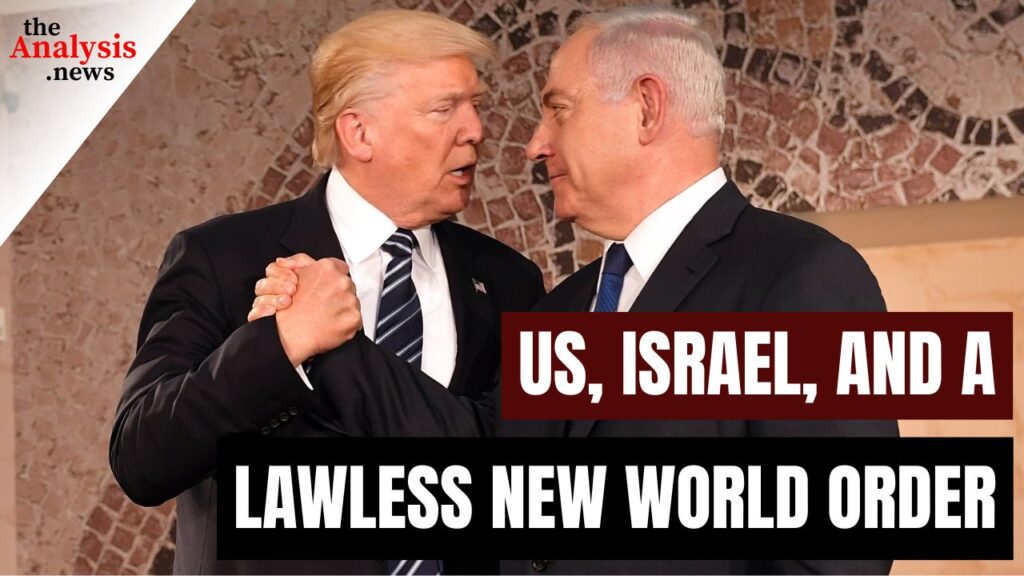

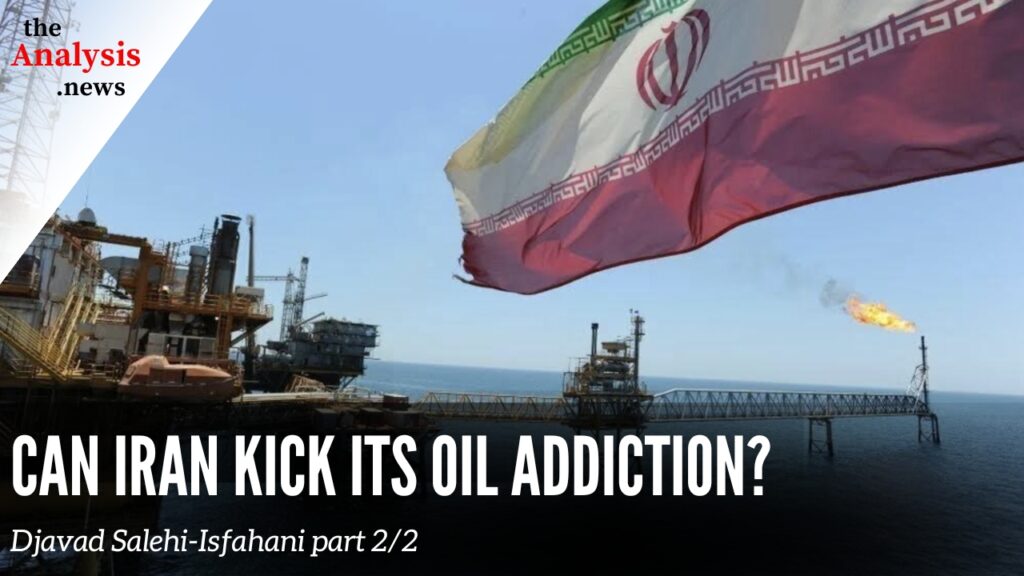
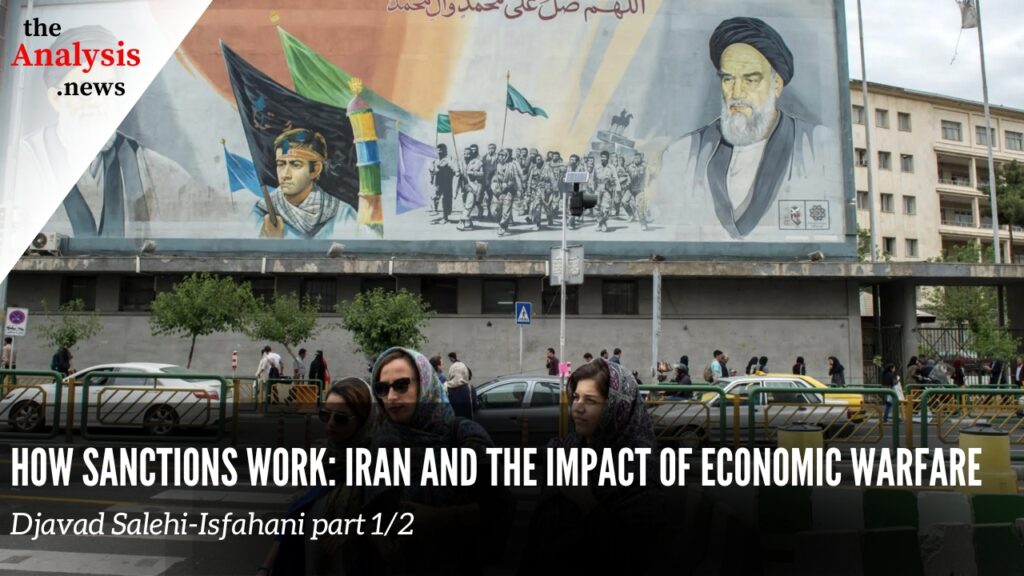
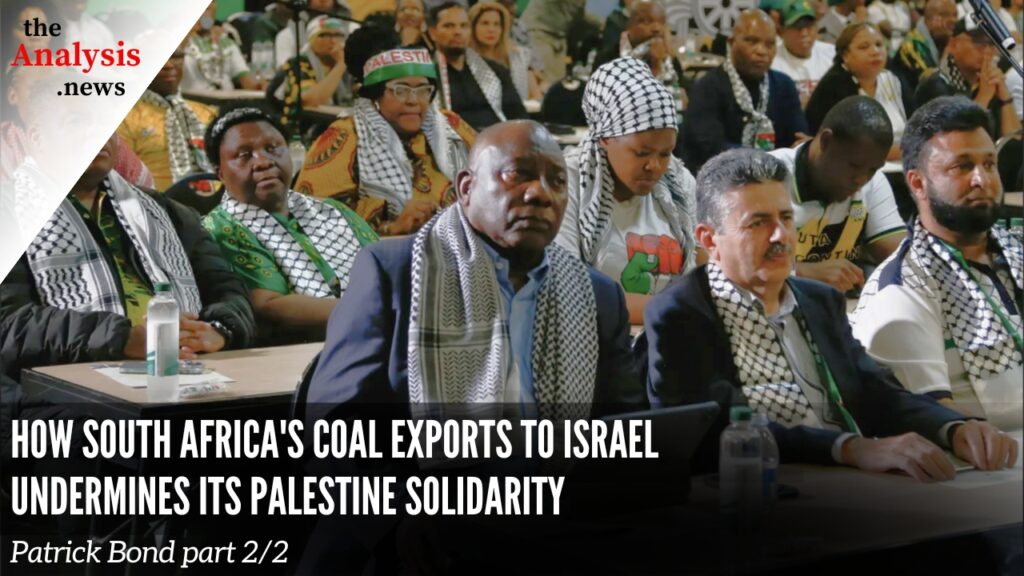
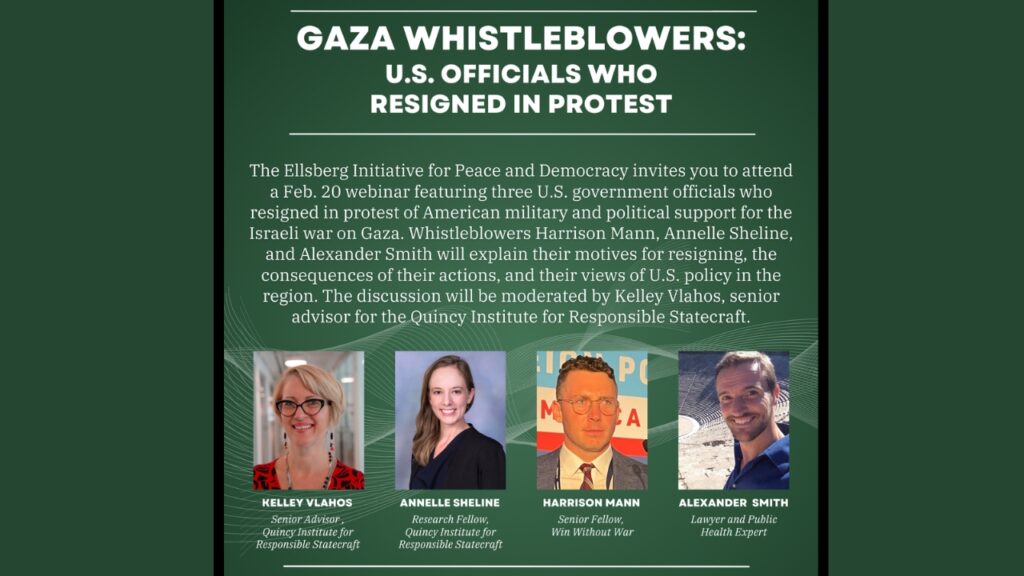






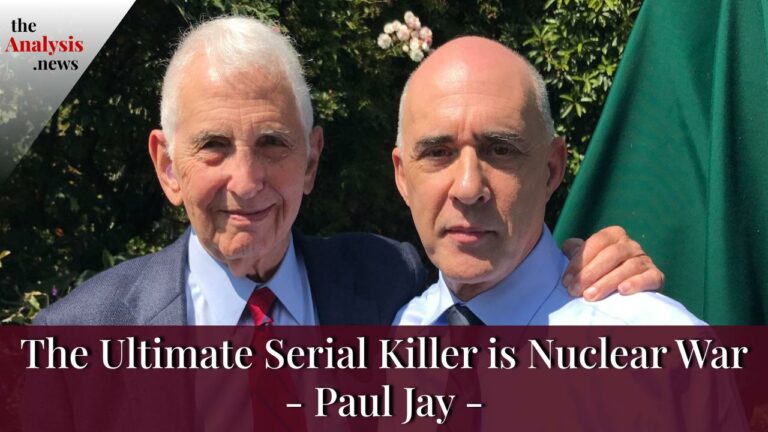
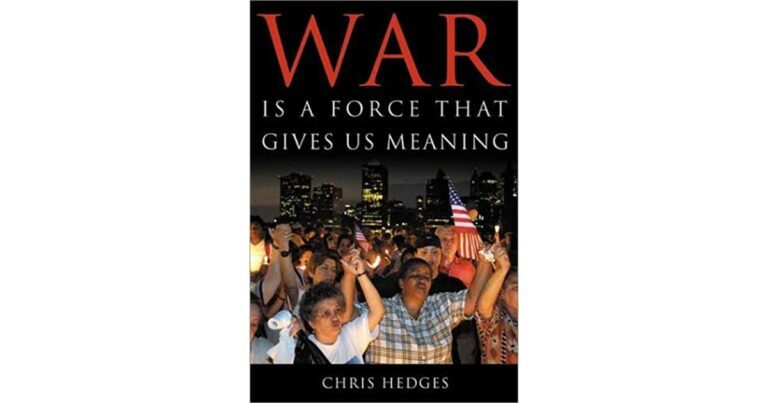

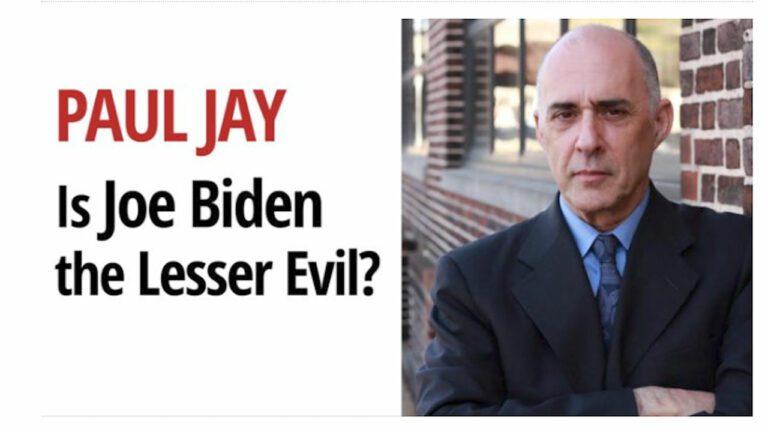
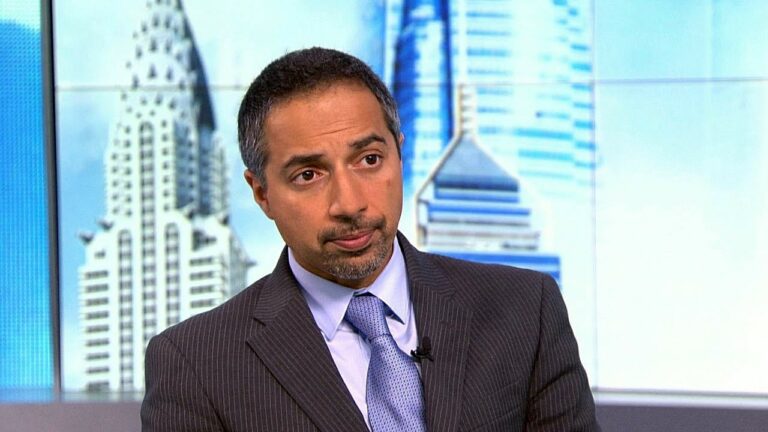
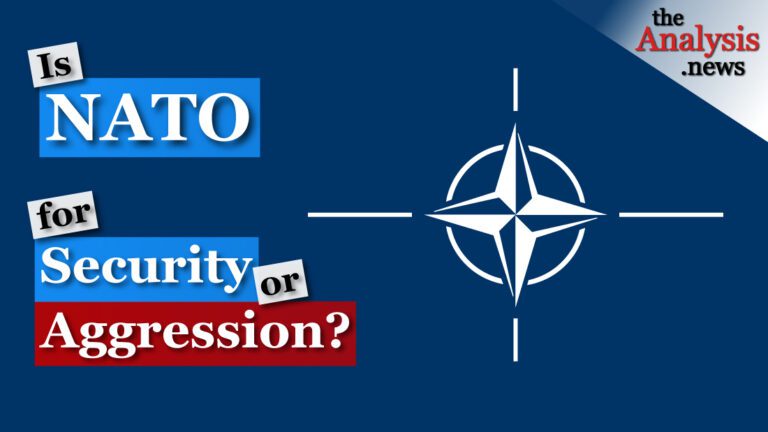
Did someone spike Larry’s coffee?
We should be using Afghanistan to play The Great Game? This is such a classic imperialist attitude and at such odds with his previous commentary. And his condescension towards Phyllis, which bordered on name-calling, was equally uncharacteristic.
Next time, please ask him to explain what exactly are the horrible things he thinks China is going to do with Afghanistan — or other calamities — when/if the US withdraws. I found him unconvincing on this basic point.
Like others, I was nonplussed by some of what Wilkerson said.
Larry Wilkerson: “You’ve got to talk about reparations all over the world” “I’m certainly ready to pay my taxes. I hope you are.” “I know you progressives and liberals believe in the modern monetary theory.” “Let me let me walk up to your front door and give you the tax bill.”
When people repeat deeply embedded propaganda, they do not say enough to make it clear what they are saying. But especially with Wilkerson’s sniping about MMT, which is nothing but rock-solid accounting that you have to be insane to dispute, he seems to be criticizing the idea of civilized spending, and extolling the benefits of military spending to the USA or its elites.
In the real world, that militarism was and is FANTASTICALLY more expensive, required fantastically more taxation than just common sense, generosity, reparations, Four Freedoms, a global New Deal. In FDR’s words, speaking about developing the Sahara to his sons, the imperialists stole billions from the third world. But FDR rightly said these billions were actually pennies compared to the wealth that would have been created both for the robbed peoples and the imperialist nations had the latter turned their efforts to creating instead of destroying. The diminution of personal wealth represented by the taxes that people have paid since 1945 on the cancer of militarism and destruction were and are far more than would be required to make a Green New Deal Utopia Earth decades ago.
It’s an old fashioned naive truism that people are afraid to say – but it is true and people should repeat it like a mantra for their own sanity: Crime Does Not Pay. One of the saddest things in the world is that not only the former militarists like Wilkerson who have gone to the side of the good, but who have the excuse of still suffering intellectually from their earlier brainwashing in the madhouse. Not only such people – but perhaps a Majority of the Left fantasize that military spending, the worst, most expensive, most destructive and useless spending (except in the very rare cases of genuine defense) – has some magical efficacy over common sense social spending, that actually requires far lower taxation. It’s taken a lot of very hard work by psychotic elites to inflict the damage we see on the world, but the worst damage is mental, making everyone think their psychotic way.
Sadly, there is NO US LEADERSHIP left on the global reserve ACCOUNT to organise any chaos beyond continental US, let alone smartly tackle the egregious load of drug-trade supported chaos in Afghanistan. Wrangling to save America at home is arguably too imperfect and failing miserably from fair US elections to clean drinking water to any accomplishment at all in terms of economic democracy. Afghanistan? Are you kidding? Forget what real democracy can do there – as long as the only real power at home in America rests in the financialization of the economy exclusively for a wealth obsessed layer of profit driven oligarchs that have the tenacity to retain power over American society mired in debt-ridden economic desperation. America’s rent-seeking Landlord class share a relentless commitment to feudalism matched only by the heartless war lords of Afghanistan. And China will not be outsmarted. Think back to Vietnam. America should have kicked French Minister President Charles De Gaulle in the ass 12 ways to Sunday rather than arrogantly think it could be a success where France had failed to prevent unification of north and south. America has absolutely no talent in caving to the Pentagon and then come out smelling fresh as a Daisy. Think about that if you believe America’s got the answer to fix Afghanistan.
Count me as another that was taken aback, by justification for imperialism and exploiting these people, by Wilkerson. I guess that his Republican credentials are being revealed.
I believe Phyllis was exactly right. There is no military solution. The USA, if it wants to be connected to the future of the Afgani’s, should like, China, engage with them diplomatically, and vie for long term contracts to construct infrastructure. But the USA, like elsewhere, sees any problem as nail, which requires a military solution.
Wilkinson’s “we have to stay in Afghanistan to fight China” wa stunning. Anglo-Americans using Afghanistan as their chessboard to play the ‘Great Game’ has been destroying the country for 200 years. Isn’t that a clear historical lesson to anyone who looks at the topic?
And his paternalistic talk about Afghans finally “getting their act together” with another 30 years of drone-enforced “chaperoning” is the standard colonial propaganda line for 200 years. It was chilling to hear.
And South Korea as his unproblematic shining model of colonial mentorship?
The Anglo-American relationship with Afghanistan is serial abuser to victim and I’m not sure how much weight we should be given to the absuer’s excuses anymore. If Wilkerson represents the liberal-internationalist branch of the military mindset than I don’t see much hope there.
Wilkerson places the blame on the people taking the drugs….what about those who proscribe drug taking as part of a clearly racist and classist war in the US?
I have always thought that there was no way at all that the US would voluntarily reduce a strategic presence of some size in an area in which no less than four nuclear powers–Russia, India, Pakistan and China (and with Iran on the cusp)–come together. I have always detested the US role in Afghanistan, but I cannot but think that arguing for a complete–and just–withdrawal from Afghanistan is a pipe dream, and that we on the left are naive if we insist on this, tragic though the consequences may be. I agonize about leaving this message, but I cannot do otherwise. I can only offer my deepest respect to those who differ from my viewpoint and praise them for their opposition to US policy. Thank you, Paul Jay, for offering a debate that will never be offered ANYWHERE else.
There are not two people in the country whose opinions I respect more than I do those of Phyllis and Larry. It is your job, Paul, to keep their discussion going until they have reached a consensus. The first question is not whether or not we should withdraw the troops. We are there. We are already involved. What “direction” should we now take? Should our involvement be military and political or could it be cultural and social? Maybe Phyllis and Larry could reach a consensus on that simple question. It is not a “solution”, it is a “direction”. If they agree on the direction then they might be able to form a consensus on the first step to take in that direction.
Paul, great show, and I was also surprised by Larry’s perspective, which seemed at odds with his previous stated positions.
Next time you have him on, please ask him about his support for the concepts of gunboat diplomacy, and the use of the US military to impose US will on foreign countries. He had always seemed to have come around to the conclusion that US interventionism was not effective, and now seems to be saying “just give it a little more time”. That is not the Larry I know.
So a question about the legitimacy and efficacy of gunboat diplomacy would be revealing. Thanks.
My remarks would be the same as Stephen…well said!
This discussion is a micro version of what it would be like if we had two distinct political parties in place of our one corporate party with a blue wing and a red wing!
Please ask the speakers if they think there can be common ground between them.